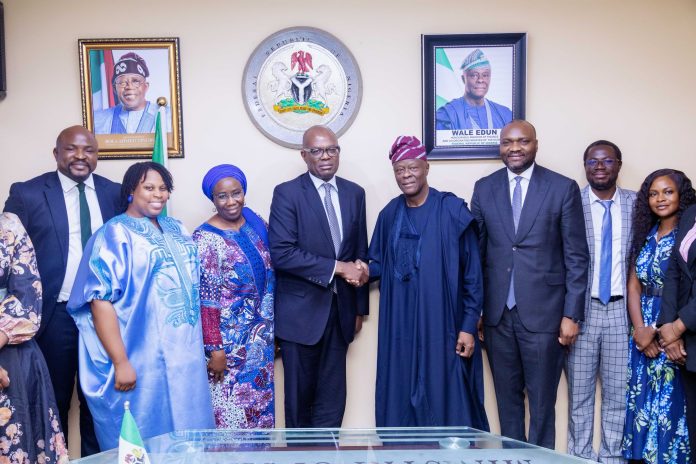In a bold move to strengthen Nigeria’s position in the global green economy, the Federal Government has launched the Nigerian Climate Investment Platform (NCIP), a country-led initiative aimed at mobilizing up to $500 million in climate finance for infrastructure, resilience, and adaptation projects.

The platform was unveiled following a high-level meeting in Abuja between the Minister of Finance and Coordinating Minister of the Economy, Mr. Wale Edun, and senior representatives of the Nigeria Sovereign Investment Authority (NSIA), the National Council on Climate Change (NCCC), and the Green Climate Fund (GCF).
According to Minister Edun, the NCIP marks a strategic effort to leverage climate finance to accelerate Nigeria’s growth, boost export competitiveness, and drive innovation in sectors such as agriculture, infrastructure, and digital technology.
“NSIA has the trust and track record to lead this,” Edun said. “The global economic environment demands that we maximize all opportunities—climate finance included—to strengthen key sectors and deliver sustainable growth.”
The NSIA, tasked with coordinating the NCIP, is working with the GCF and local stakeholders to design a financing structure capable of attracting both international and domestic capital. NSIA’s Managing Director, Mr. Aminu Umar-Sadiq, credited the Minister’s vision for catalyzing the platform.
“This challenge has driven us to co-create an investment-ready structure with the GCF and local players,” Umar-Sadiq noted.
Representing the GCF, Mr. Soji Omisore acknowledged the absence of a Nigeria-specific project in the fund’s portfolio, saying the launch of NCIP represents a turning point.
“There’s no standalone GCF project focused solely on Nigeria. That must change. The NCIP is a step in that direction,” he said.
Dr. Nkiruka Maduekwe, Director-General of the NCCC, emphasized the urgent need for more accredited Nigerian entities to access global climate funds.
“Smaller countries have more accredited institutions than Nigeria. We are advocating for NSIA, NASRDA, and even the Ministry of Finance to seek accreditation,” she said.
The NCIP is part of Nigeria’s wider strategy to access climate-linked capital and position the country as a regional hub for sustainable finance, especially as the African Continental Free Trade Area (AfCFTA) opens new opportunities for green trade.
If successfully implemented, the platform could transform climate-related financing in Nigeria, deepen resilience across sectors, and place the country at the forefront of Africa’s green transition.














